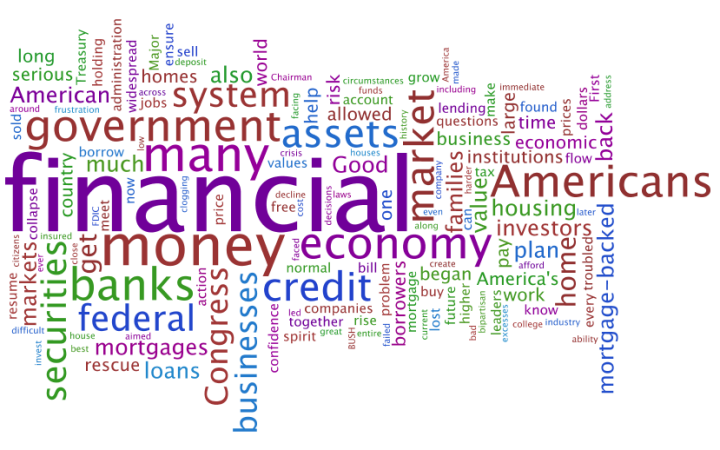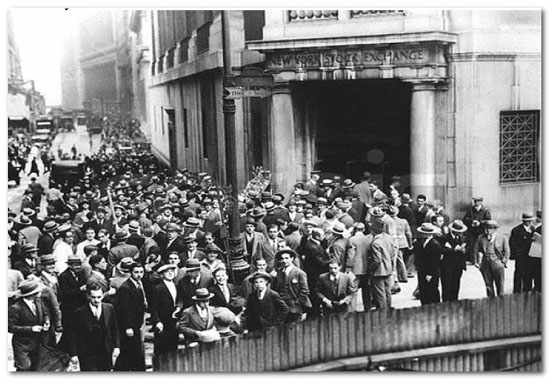The words “irresponsible lending” have become a popular snort in response to the perceived behaviour of “the banks” – a poorly defined group of companies presumably referring to retail banks, who do indeed lend, yet often used against Lehmann Bros., Goldman Sachs and other Investment Banks, who are ( or were, in Lehmann’s case ) not money lenders.
It seems we have picked up the phrase from newspapers, perhaps as those promoting it hoped we would. No one used the phrase when lending was powering house prices higher, selling new cars and allowing other credit-fuelled spending to boost the economy, make people feel wealthy and thus help politicians win elections.
Indeed, I recall a certain now-quiet chancellor loudly taking all the credit ( boom boom ! ) himself.
Until it all went wrong. Then it was obviously nothing to do with him.
You can’t lend to someone who doesn’t want to borrow. “Irresponsible borrowing” is not a vote winner though. A little too close to home for too many.
The UK ( and the US ) pursued an expansion of credit and lowering of credit cost by removing regulations and controls. It was intended to fuel credit and lower it’s cost. The result was in no way an unintended nor unpredictable consequence. It was a political decision.
The common factor in countries with a banking problem is politicians who loosened credit restrictions ( banks cannot do this … ) to enable the party, took credit for the revelry, and then failed to face up to the consequences once the borrowing went too far. Banks in other countries, where the politicians were too wise ( or slow, or dimwitted, you choose ) to follow the plan did not and do not have a problem. So the banks were not the issue. The credit loosening may have had honourable intentions at the beginning. To extend credit to those who had traditionally found it hard to borrow. Clinton’s agenda. Or it may have been a cynical attempt to buy the votes of the many millions in that situation. You choose. It doesn’t matter. A credit explosion wasn’t an unintended consequence of the politicians choosing to deregulate, it was the very purpose.
Once the credit was in the system, the outcome, perhaps surprising even to those who initiated it, was for a while seemingly “everyones a winner”. Due to efficiency driven from the technology boom, and to some extent from the new global availability of goods produced in low-wage countries, the only inflation that occured was in house prices. Which turned out to be popular. No politician, prior to the bubble bursting, ever tried to rein in credit or to mock the industry that facilitated their plan. Knighthoods, remember. After the bubble, of course, those same politicians could not say “global crisis” and “reckless bankers” often enough. Again though, the common factor was not banking, and the crisis is not global.
The reason for “over production” is simple. Credit is a product for which there is no raw material, no storage costs, no shipping costs, and no manual labour requirement. It’s production is thus only limited by the controls in place, it’s consumption limited only by it’s price. That’s why controls work. That’s why the government ( not the producers of credit, the banks ) have always used them – to govern.
Remove the controls and production increases.
Like any other product, higher production lowers the price. Lower the price and demand increases.
But production is now ungoverned ! The usual economic brake on such a dangerous positive-feedback loop is inflation. Once this begins, the government generally wakes up, or the BoE Governor ( now there is a title to ponder … ) writes his apology letter, and either reintroduce controls on the supply-side ( minimum reserve asset ratios, for example, the ones that Brown removed ) or on the demand side, by raising interest rates.
We know that inflation didn’t happen, due to the import of cheaper goods from Asia and the decade-long productivity gains from technology. The government knew it too, it being raised at Committee level. They just didn’t have the balls ( or Balls ) to stop it prior to the election.
On such greed, vanity and incompetence, the nation’s financial system collapsed.






0 Replies to “Irresponsible Lending”